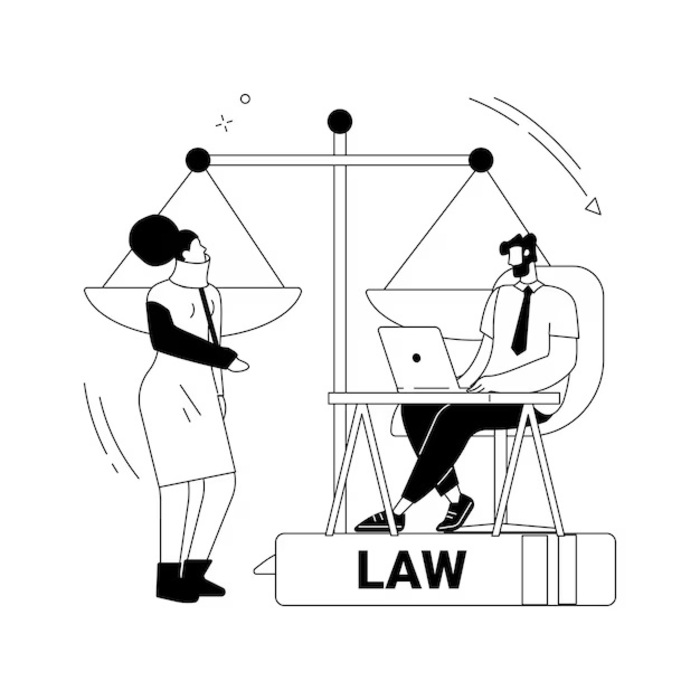The landscape of the legal profession is undergoing a notable transformation, driven by technological advancements and changing client expectations. To thrive in this dynamic environment, practitioners must cultivate a diverse array of abilities that extend beyond traditional knowledge of the law. By embracing a more holistic approach, they can navigate the complexities of contemporary practice effectively and efficiently.
For those aspiring to excel in this field, understanding the nuances of these competencies becomes paramount. This involves not only mastering essential concepts but also developing an adaptable mindset that allows one to respond to evolving challenges. As the demand for innovative solutions increases, the importance of proficiency in various disciplines cannot be overstated.
Moreover, the integration of cross-functional expertise will play a significant role in ensuring success. Those who can blend their legal knowledge with strategic thinking, technological acumen, and strong communication abilities will be best positioned to lead in this progressive arena. Recognizing the interplay between these elements is crucial for navigating the future landscape of the legal profession.
Understanding the Role of Legal Operations
The landscape of the legal environment is evolving, and a new framework is emerging to enhance efficiency and effectiveness within this sector. This framework encompasses a variety of functions that streamline processes, improve service delivery, and foster innovation. The focus is on implementing strategic initiatives that transform how legal teams operate and engage with clients.
Key components that define this evolving role include:
- Process Improvement: Analyzing and refining workflows to eliminate bottlenecks and maximize productivity.
- Technology Integration: Leveraging modern tools and software to automate routine tasks and enhance collaboration.
- Financial Management: Managing budgets, forecasting expenses, and optimizing resource allocation to achieve financial health.
Additionally, effective communication and collaboration among various stakeholders are vital to ensuring coherence and alignment in objectives. This role not only supports the legal team but also enhances relationships with clients and other departments within an organization.
To summarize, the function at hand plays a critical role in redefining traditional practices, embracing innovation, and positioning legal entities to adapt to contemporary challenges. By employing strategic methodologies and tools, professionals within this framework contribute significantly to the overall success and resilience of their organizations.
Key Skills for Effective Legal Management
In today’s dynamic environment, professionals in the field must possess a diverse set of competencies to navigate complex challenges and streamline processes. The ability to manage resources efficiently while ensuring compliance and fostering collaboration is paramount. Understanding the foundational elements that contribute to successful management can empower individuals to excel in their roles and drive organizational success.
| Competency | Description |
|---|---|
| Strategic Thinking | The capacity to formulate long-term goals and identify the necessary steps to achieve them, aligning team efforts with organizational objectives. |
| Communication | Effective conveyance of information, fostering clear dialogues within teams and with clients, ensuring that all parties are aligned and informed. |
| Project Management | The ability to oversee projects from conception to completion, managing timelines, budgets, and resources while mitigating risks. |
| Technological Proficiency | A strong understanding of relevant tools and software that enhance efficiency, data management, and communication within the workplace. |
| Analytical Thinking | The ability to systematically evaluate information, draw insights, and make data-driven decisions to improve service delivery. |
| Negotiation | The art of reaching mutually beneficial agreements, showcasing persuasion and understanding of varied perspectives involved in discussions. |
Technology Proficiency in Legal Work
In an increasingly digital landscape, the ability to navigate and utilize various technological tools has become paramount in the field of jurisprudence. Professionals must adapt to innovative methods and systems that enhance productivity and efficiency, ensuring they remain competitive in their industry.
Benefits of Technological Competence
The integration of technology into daily tasks brings numerous advantages:
- Increased Efficiency: Automation of routine tasks allows for more focus on complex issues.
- Enhanced Communication: Tools facilitate seamless interaction between clients and colleagues.
- Data Management: Advanced software helps in organizing and retrieving extensive case information swiftly.
- Improved Research Capabilities: Online databases provide access to vast resources for case law and regulations.
Key Technologies to Master
To thrive in this evolving environment, it is crucial to be familiar with the following technologies:
- Document Management Systems
- E-Discovery Tools
- Case Management Software
- Virtual Collaboration Platforms
- Artificial Intelligence Applications
By prioritizing technological mastery, individuals can significantly enhance their effectiveness and adaptability, positioning themselves at the forefront of their field.
Communication Strategies for Legal Professionals
Effective interaction is crucial in the field of law. Mastering the art of dialogue not only enhances relationships with clients but also fosters collaboration among colleagues. Clear and persuasive communication can significantly influence case outcomes, enhance negotiations, and ensure that all parties are on the same page.
Building Rapport with Clients
Establishing a positive connection with clients is fundamental to successful practice. Consider the following methods:
- Active listening: Show genuine interest in clients’ concerns by allowing them to express themselves fully before responding.
- Empathy: Understand and acknowledge clients’ emotions; this builds trust and reinforces your commitment to their needs.
- Clear language: Avoid jargon and explain complex concepts in a straightforward manner to prevent misunderstanding.
Effective Internal Communication
Collaboration within teams is vital for efficiency. Implement these strategies to enhance internal dialogue:
- Regular updates: Schedule consistent meetings to discuss ongoing projects and address any issues that may arise.
- Utilize technology: Employ messaging platforms and collaborative tools to streamline information sharing among team members.
- Feedback culture: Encourage open feedback to create an environment where ideas and concerns can be expressed freely.
Data Analysis for Informed Decision-Making
Understanding and utilizing information effectively has become a crucial component in various fields. The ability to interpret data not only enhances the quality of choices made but also optimizes overall strategy and execution. Insightful analysis equips individuals with the knowledge necessary to navigate challenges and seize opportunities, thus fostering a more robust decision-making process.
The Importance of Data Interpretation
Accurate interpretation of data allows individuals to draw meaningful conclusions and develop actionable insights. In a landscape where vast amounts of information are generated daily, the capacity to sift through and analyze relevant data empowers decision-makers to identify trends, assess risks, and evaluate outcomes. This analytical approach leads to more effective and targeted solutions, ultimately contributing to the achievement of objectives.
Tools and Techniques for Data Analysis
Employing appropriate tools and techniques is vital for successful analysis. Advanced software and platforms can facilitate the collection, organization, and examination of data, making the process more efficient. Utilizing visualization techniques can also enhance comprehension, allowing stakeholders to grasp complex information quickly. By leveraging these resources, individuals can improve their decision-making capabilities and drive innovation.
Building Collaborative Team Environments
Creating a supportive and interconnected workplace is vital for enhancing productivity and innovation. Teams thrive when members feel valued, engaged, and empowered to contribute their ideas. Establishing a culture of collaboration fosters trust and open communication, which can lead to improved outcomes and job satisfaction.
- Embrace diversity of thought by encouraging team members to share their unique perspectives.
- Facilitate regular meetings that allow for discussion, brainstorming, and feedback.
- Implement tools and technologies that promote seamless communication and project management.
Furthermore, recognizing individual strengths and assigning roles accordingly can significantly enhance team dynamics. By aligning tasks with each member’s expertise, teams can operate more efficiently and effectively.
- Identify each team member’s strengths through assessments or open discussions.
- Create projects that leverage these strengths while promoting collaboration.
- Schedule periodic check-ins to monitor progress and address any challenges.
A culture that values teamwork can lead to not only higher performance but also greater employee satisfaction. When individuals feel supported by their colleagues, they are more likely to take initiative and contribute positively to the group’s goals.
Q&A: Legal operations skills
What are the key skills that modern legal professionals need to succeed in legal operations?
Modern legal professionals should focus on a variety of essential skills to excel in legal operations. These include project management skills to oversee legal projects effectively, financial literacy to understand budgets and cost management, data analysis to leverage insights for decision-making, technology proficiency to navigate legal software and tools, and strong communication skills to collaborate effectively with clients and teams. Additionally, understanding compliance and risk management is crucial in today’s complex legal landscape.
How can technology proficiency improve the efficiency of legal operations?
Technology proficiency can significantly enhance the efficiency of legal operations by automating routine tasks, streamlining workflows, and facilitating better communication among team members. For instance, legal management software can help track deadlines, manage documents, and bill clients more accurately. By utilizing data analytics, legal professionals can also gain insights into case outcomes and client needs, improving their strategic planning and service delivery. Ultimately, being adept with technology allows legal professionals to focus more on high-value activities rather than mundane administrative tasks.
Why is financial literacy important for legal professionals in operations roles?
Financial literacy is vital for legal professionals in operations roles because it enables them to manage budgets, forecast expenses, and assess the financial impact of legal decisions. Understanding financial metrics helps legal teams optimize resource allocation and identify areas for cost savings. Moreover, financial literacy aids in communicating effectively with stakeholders, such as management and clients, ensuring that legal expenditures align with broader business objectives. With a solid grasp of financial principles, legal professionals can contribute to the overall profitability and sustainability of their organizations.
What role does communication play in effective legal operations?
Communication plays a crucial role in effective legal operations as it fosters collaboration among team members, facilitates information sharing, and enhances relationships with clients and external partners. Strong communication skills allow legal professionals to explain complex legal concepts in a clear and understandable manner, ensuring all stakeholders are on the same page. Additionally, effective communication helps in managing expectations and addressing concerns promptly, which can prevent issues from escalating. In a modern legal environment where remote work is prevalent, maintaining clear and consistent communication becomes even more vital for seamless operations.
How can aspiring legal professionals develop the essential skills for legal operations?
Aspiring legal professionals can develop essential skills for legal operations through a combination of formal education, practical experience, and self-directed learning. Pursuing degrees or certifications in areas such as law, business management, or project management provides foundational knowledge. Additionally, seeking internships or entry-level positions in legal departments can offer hands-on experience in legal operations. Staying updated with industry trends and tools through online courses, workshops, and webinars is also beneficial. Networking with professionals already in the field can provide insights and mentorship opportunities to help cultivate these skills further.
What are the essential legal operations skills that modern legal professionals need to develop?
Modern legal professionals must develop a variety of essential skills to thrive in today’s legal landscape. These include project management skills for overseeing legal projects efficiently, data analytics skills for interpreting complex data to inform decision-making, and a strong understanding of technology to leverage legal tech tools effectively. Additionally, professionals should cultivate excellent communication skills to collaborate with clients and team members, as well as negotiation skills to handle discussions and disputes effectively. Finally, a solid grounding in compliance and risk management is crucial to navigate the regulatory environment and protect the organization’s interests.
What are the key responsibilities of a legal operations manager in an in-house legal department?
A legal operations manager must oversee various legal processes to ensure the in-house legal department runs efficiently. This includes managing legal spend, implementing legal technology, and handling vendor management to optimize the delivery of legal services. Legal operations professionals must focus on contract management, knowledge management, and matter management, ensuring best practices are applied within the legal ops function. By doing so, they enable the legal team to focus on providing legal advice, while the legal ops team handles operational tasks. The legal operations manager must also work closely with external legal service providers to ensure the legal department’s goals are met.
How does legal technology influence successful legal operations in corporate legal departments?
Legal technology plays a crucial role in making legal operations more efficient by streamlining processes such as contract lifecycle management, legal data analysis, and vendor management. Legal operations professionals must leverage legal tech solutions and management tools to reduce legal spend and improve the overall function of the legal team. Implementing new legal tech can also support change management, helping corporate legal departments adapt to evolving needs. A successful legal operations team uses technology to automate routine tasks and manage the legal workflow, allowing legal professionals to focus on high-value work, including legal research and legal advice.
What role does a director of legal operations play within legal departments, and what skills are crucial for success?
A director of legal operations plays a critical role within the legal department by overseeing the legal operations function and ensuring that the department operates efficiently. This position requires strong legal operations management skills, including leadership and communication skills, which are crucial for coordinating with both the head of legal and legal ops professionals. The director of legal operations is responsible for implementing best practices that make the legal function more efficient, such as leveraging legal research tools, managing legal documents, and optimizing workflows. In collaboration with the corporate legal operations consortium and other industry groups, they gain insights into legal operations trends and strategies. The ability to analyze legal and regulatory data, along with expertise in managing legal spend and improving legal processes, enables legal teams to focus on high-value tasks. A successful director of legal operations must possess a well-rounded set of skills, including knowledge of legal tech, to drive strong legal operations that add value within legal departments.
What is the role of a legal operations specialist and why are their skills vital within legal departments?
The role of a legal operations specialist is essential in helping legal departments run more efficiently by streamlining processes and implementing best practices. Many legal departments rely on the expertise of legal operations specialists to manage workflows, optimize resources, and enhance the value of legal services. These professionals focus on improving the value of legal operations by utilizing tools and strategies that make the legal function more efficient. The skills are vital for success in this role, as legal operations managers must possess a deep understanding of the legal industry and the ability to manage complex tasks. By ensuring that legal operations are optimized, specialists enable legal teams to focus on high-level legal expertise, thus increasing the overall effectiveness of the department. A guide to legal ops roles often highlights how these professionals contribute to the value of legal operations, showing that they play a critical part in many legal departments.
How can implementing a “one legal” approach make legal operations more efficient?
A “one legal” approach involves unifying processes, tools, and workflows across the entire legal department to ensure consistency and collaboration. This strategy makes legal operations more efficient by reducing redundancies, improving communication, and streamlining workflows. By standardizing procedures within legal operations, the department can better manage tasks, such as contract review and compliance, leading to faster turnaround times and greater productivity. Implementing a “one legal” model enables teams to work cohesively, ensuring that resources are used effectively and legal services are delivered more efficiently across the organization.








